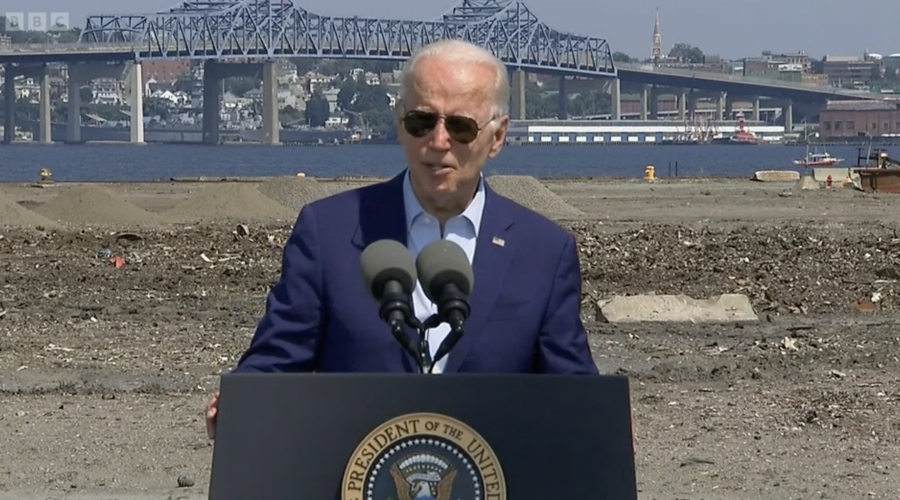US President Joe Biden has announced $2.3 billion to help build infrastructure that can withstand extreme weather and natural disasters.
This demonstrates Biden's determination, but BBC analysts believe he is cautiously moving too far in using this type of presidential power, informs BBC.
However, Biden has not officially declared a climate emergency, which would have given him additional powers. He noted that the heat wave is bringing extreme weather to Europe and North America.
Currently, tens of millions of people in the US in more than two dozen states are living under a heat alert.
"Climate change is literally an existential threat to our nation and the world," Biden said. "The health of our citizens and our communities is at stake. So we must act."
This happened on Wednesday, July 20, near the former coal-fired power plant in the city of Somerset.
Funding will be directed to:
- expanding flood control;
- strengthening public services;
- modernization of buildings;
- helping families pay for heating and cooling costs.
The money will come from the existing budget of the Federal Emergency Management Agency and will be prioritized for poor communities, the White House said.
It includes $385 million to help governments fund air conditioning systems for homes and public cold stores.
The administration also plans to provide additional support for offshore wind and energy development in the Gulf of Mexico, as well as new workplace standards to protect workers from extreme weather.
The story noted that Biden is under increasing pressure from fellow Democrats and environmental groups to do so after West Virginia Senator Joe Manchin said he would not support climate change legislation, dealing a significant blow to the agenda. day. Biden. Manchin expressed concern about inflation.
Biden said that because Congress is not acting the way it should and plans to announce additional executive actions in the coming weeks.
"Our children and grandchildren are counting on us," he said. “If we don’t keep climate change below 1.5°C, we will lose everything. We won’t be able to change the situation.”
Esme Stallard, climate correspondent for the BBC, noted that Biden's path to making his campaign promises on climate policy a reality was far from easy.
Ahead of the climate conference in Glasgow, Biden pledged that by 2024 the US would commit $11.4 billion a year to climate action to help developing countries fight and prepare for climate change. But in March, he only managed to get $1 billion of them from Congress, only a third more than Trump-era spending.
In June, the Environmental Protection Agency lost some of its powers to cut greenhouse gas emissions in a landmark US Supreme Court decision after a case bought by 19 coal states worried about job losses.
“It is clear that battle lines have been drawn in the US on climate action, and time will tell how far Biden will go during his presidency in realizing his ambitions,” Stallard said.
Earlier, EcoPolitic wrote, that US President Joe Biden called on the world community to accelerate the transition to clean energy against the background of the impact of Russia's large-scale war against Ukraine on energy markets around the world.
As EcoPolitic previously reported, the US Department of Energy plans to finance the development of decarbonization for key industries.





